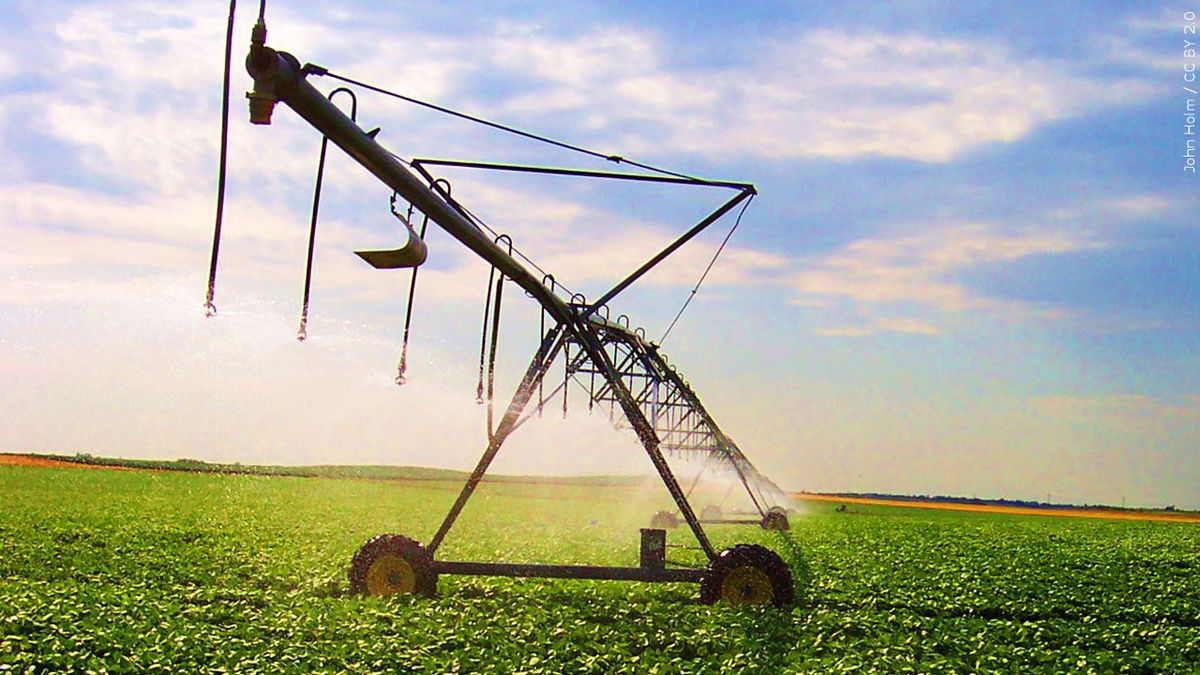Water Curtailment to Harm Idahoans

IDAHO FALLS, Idaho (Idaho Ground Water Appropriators New Release) - The Idaho Department of Water Resources (IDWR) ordered the single largest curtailment of water use in the state’s history, ordering eastern Idaho farmers to dry up hundreds of thousands of acres of farmland and potentially inflicting hundreds of millions of dollars in economic loss to the state.
The department has projected a 74,100-acre foot shortage in surface water delivery downstream from the groundwater pumping districts. For perspective, that amount would irrigate roughly 20,000 acres of farmland.
Based on agreements signed in 2009 and 2016, IGWA has a number of options for mitigating the projected shortage, including providing water stored in Idaho dams and increased conservation or efficiency measures.
The order was issued despite offers by the Idaho Groundwater Appropriators (IGWA), an organization representing farmers within the nine groundwater districts in eastern Idaho, and ground water districts individually to deliver water stored in reservoirs to fully offset the effects of their groundwater use, as they have in years past. IDWR has allowed other groundwater users to offset the effects of their pumping with storage water this irrigation season, but has refused to allow IGWA and the ground water districts to do so this year.
“What remains is an utterly absurd situation, where hundreds of thousands of acres of farmland, and their associated economic benefits, are thrown away during a wet year to cause a small amount of additional water to overflow from the aquifer into the Snake River,” said IGWA attorney TJ Budge. “Throughout this entire process, IDWR has been inconsistent and troublingly biased against groundwater users..”
To remedy the shortfall, IDWR threatened to shut down the use of 1.5 million acre-feet of water in an effort to supply 74,100 acre feet. Some groundwater users have been able to avoid curtailment through mitigation plans. The total farmland shut down under the latest curtailment is not certain, but is estimated to exceed 500,000 acres.
The curtailment is a dramatic and punitive move for farmers. It is not effective at addressing a project water shortage, however. Much of the farmland that will be dried up will not supply any meaningful amount of additional water to surface water users in 2024. For example, the curtailment will dry up over 40,000 acres in Jerome County — eliminating 105,000 acre-feet of water that supports Idaho’s dairy industry — in order to provide 0.17 acre-feet of water to surface water users. Similarly, the curtailment will dry up over 104,000 acres in Jefferson County — eliminating 231,000 acre-feet of water — in order to provide 372 acre-feet to surface water flows.
“Our membership understands its responsibility to provide all the water that is owed to senior water rights holders in Idaho,” said Stephanie Mickelsen, IGWA Chair. “We are not advocating for any solution that leaves those water rights holders shorthanded. But when the state orders curtailment without adequately considering alternatives, it is unnecessarily threatening Idaho’s economic backbone, not to mention the families of farmers across eastern Idaho.”
IGWA membership believes solutions remain that address all stakeholder concerns that are within the discretion of IDWR to adopt. It urges the state to reconsider its choice to use a nuclear option.
“It is inexcusable and inexplicable that IDWR would order the shut off of this much water in a year when we've had a strong snowpack, nearly full reservoirs and flooding riverbanks,” Mickelsen said. “It makes one wonder, is this a resource problem or is it a management problem?”






